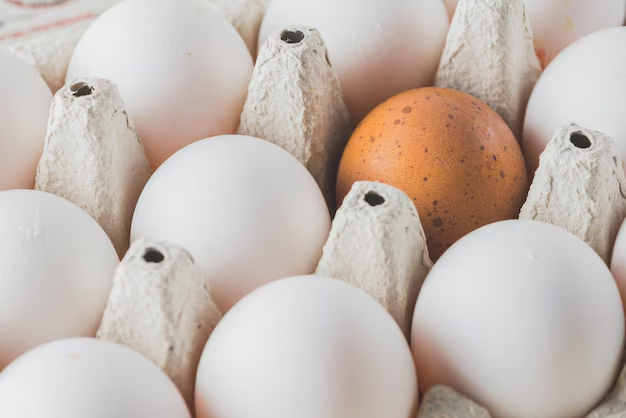Are Your Eggs Still Fresh After Two Months in the Fridge? Discover the Truth!
Eggs are a staple in many households, celebrated for their versatility and nutritional benefits. But if you've ever unearthed an egg carton hiding in the back of your fridge, you may have found yourself wondering: Are eggs still good after two months in the refrigerator? The answer isn't quite as simple as 'yes' or 'no,' so let's crack into the topic to uncover the truth.
🥚 How Long Do Eggs Typically Last?
Understanding Expiration Dates
Egg cartons often come stamped with a “sell-by,” “best before,” or “expiration” date. While these dates offer a general guideline, they aren't always the final word on an egg's edibility. The “sell-by” date indicates how long a store should display the eggs, while the “best before” date suggests the period when the eggs are expected to maintain optimal quality. However, with proper storage, eggs can remain safe beyond these dates.
Storage Conditions and Their Impact
Proper storage is key to extending the life of your eggs. Refrigerated at a consistent temperature below 40°F (about 4°C), eggs can last several weeks. Refrigeration slows down the growth of bacteria, significantly increasing the shelf life. Let's explore how, even after two months, your eggs might still be usable.
🧪 Testing Egg Freshness
The Float Test
One popular home method to test egg freshness is the float test. Fill a bowl with water and gently place the egg in it. If the egg sinks and lays flat on its side, it’s fresh. If it stands upright or floats, it’s older and may not be suitable for consumption. The science behind this test is simple: as eggs age, the air cell inside the shell grows, making it more buoyant.
The Sniff Test
Unpleasant as it might sound, the sniff test is reliable. Crack the egg open and give it a whiff. A fresh egg will have only a slight odor, while a potent, sulfuric smell indicates spoilage.
💡 Signs Your Eggs Have Gone Bad
Visual Inspection
One of the simplest methods is to examine the egg visually. Look for obvious signs like:
- Cracked shells: These can allow bacteria to enter.
- Discolored whites or yolks: A consistent color is a sign of a good egg.
- Cloudy egg whites: Not a spoilage indicator, but a sign of freshness as the cloudiness is caused by naturally occurring carbon dioxide.
The Shake Test
Although less common, the shake test may also help. Shake the egg gently next to your ear. A lot of movement suggests age, as the egg white and yolk tend to become runny over time.
🏡 Storing Eggs for Maximum Freshness
Keep Eggs Cool
Always store eggs in their carton and place them in the coldest part of the fridge, not on the door. The door tends to be the warmest part due to frequent opening and closing, which can compromise longevity.
Prevent Cross-Contamination
Keep eggs away from strong-smelling foods in the refrigerator. They can absorb odors through their porous shells, which may affect their taste.
Consider Freezing
If you're approaching the two-month mark and still have eggs to spare, consider freezing them. Crack and beat the eggs before freezing them in airtight containers or ice cube trays. This step can prolong their usability for up to a year.
⚠️ Safety and Health Considerations
Risks of Consuming Spoiled Eggs
Eating spoiled eggs can pose health risks such as food poisoning, which can lead to symptoms like stomach cramps, nausea, diarrhea, and vomiting. To minimize risk, ensure you follow the storage guidelines and conduct freshness tests before consumption.
The Role of Cooking
Cooking eggs thoroughly can destroy most of the harmful bacteria present. Even older eggs can often be safely consumed when cooked properly, such as in baked goods, or hard-boiled, where the egg reaches a high enough internal temperature.
📋 The Key Takeaways
Here's a handy summary of how to make sure your eggs are fresh or know when it's time to toss them:
- 🐣 Conduct a Float Test: Fresh eggs sink; older ones float.
- 👃 Use the Sniff Test: A bad smell indicates spoilage.
- 🔍 Inspect Visually: Beware of cracked shells and unusual colors.
- 🚪 Store Properly: Keep eggs in the carton in the fridge, not on the door.
- ⏳ Extend Life by Freezing: Beat and freeze eggs to keep them for up to a year.
Final Thoughts: When in Doubt, Throw It Out
Even with all these tips and tricks, there might be occasions where you're just not sure about the edibility of your eggs. When in doubt, it's better to err on the side of caution and discard them. Your health is more important than salvaging a lost egg or two. Armed with these insights, you can navigate the mysterious world of egg freshness with confidence.

